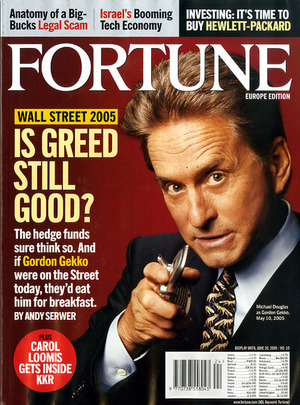Greed, Socialism, Capitalism, and the Bible
It is common these days to hear those advocating ‘social justice’ to frame wealthy individuals (e.g. Romney, insert your favorite CEO here) as being driven by greed. The solution for this seems to be to clamor for the government to take some of their wealth and redistribute it to those who have less (socialism). But does this address the problem of greed or exacerbate it?
Socialism (i.e. collectivism, statism, Marxism, Communism, central planning) is a worldview built upon the crusade for a utopia based upon economic equality (such crusades include FDR’s “great society” and LBJ’s “war on poverty”). Socialism defines “equality” among people according to their material possessions. It plays upon the envy (a variation of greed) of those who have less and tells them that others don’t deserve to have so much. It contends that the wealthy take from the less wealthy and give nothing in return. And it expects people to work for the community before working for themselves. This is an admirable dream, but how can it work when the world is so obviously full of self-serving people? Here’s how: the government will force people to be ‘charitable’ (redistribution).
 On the other hand, free-market capitalism (dirty words to socialists) never pretends that utopia is achievable. Rather, it takes into account the fallen nature of man and his innate drive to serve himself (Jer. 17:9). Capitalism is based upon trade-offs, not crusades. You have something I want and I have something you want so we can trade and satisfy our mutual need and/or greed. It doesn’t matter if the ingratiating waiter in a restaurant really cares nothing about me and is only interested in a big tip; if he provides good service to get that tip, then we both are satisfied. If the fat-cat CEO only wants to make another million $, he still has to employ more people to work for him and offer a decent product others want.
On the other hand, free-market capitalism (dirty words to socialists) never pretends that utopia is achievable. Rather, it takes into account the fallen nature of man and his innate drive to serve himself (Jer. 17:9). Capitalism is based upon trade-offs, not crusades. You have something I want and I have something you want so we can trade and satisfy our mutual need and/or greed. It doesn’t matter if the ingratiating waiter in a restaurant really cares nothing about me and is only interested in a big tip; if he provides good service to get that tip, then we both are satisfied. If the fat-cat CEO only wants to make another million $, he still has to employ more people to work for him and offer a decent product others want.
 However, if the waiter or the CEO gets too greedy and his service or product suffers, his competition (another capitalist) will take his business by better serving the needs of the clients.
However, if the waiter or the CEO gets too greedy and his service or product suffers, his competition (another capitalist) will take his business by better serving the needs of the clients.
But isn’t this view a bit fatalistic? I mean shouldn’t we expect the best from our fellow man and govern society according to that expectation? Even if we aim for utopia and miss, things will still be pretty good, right? WRONG.
China, the Soviet Union, Cuba, N. Korea, and every other society that has carried a socialistic utopia to its ultimate conclusion has given its people utter misery – dystopia. Conversely, the robust capitalism of the United States has lifted every social class so that even our poor fair better than many well-off citizens of other countries.
Make no mistake, greed is not good (Ex. 20:17, 1John 2:15), but it is channeled in a positive direction within a capitalistic system, whereas it is ignited (envy) within a socialistic one. Capitalism assumes a perfect world is unattainable; socialism assumes that government can coerce one even though government officials are no more virtuous (and often far less so) than those they govern.
Which system works best with human nature? According to the most ruthless communist who ever lived, Chairman Mao, capitalism does. He said, “There is a serious tendency toward capitalism among the well-to-do peasants.” In other words, the drive to excel and multiply one’s property (capital) emerges even when oppressed. Jesus illustrated the spiritual application of this principle in the parable of the talents (Mat. 25).
The bottom line is that capitalism is the default system for a fallen, sinful world. When this biblical principle of fallenness is denied, disaster is inevitable. Only Christ-like open-handedness can truly meet the needs government can not (Deut. 15:11).